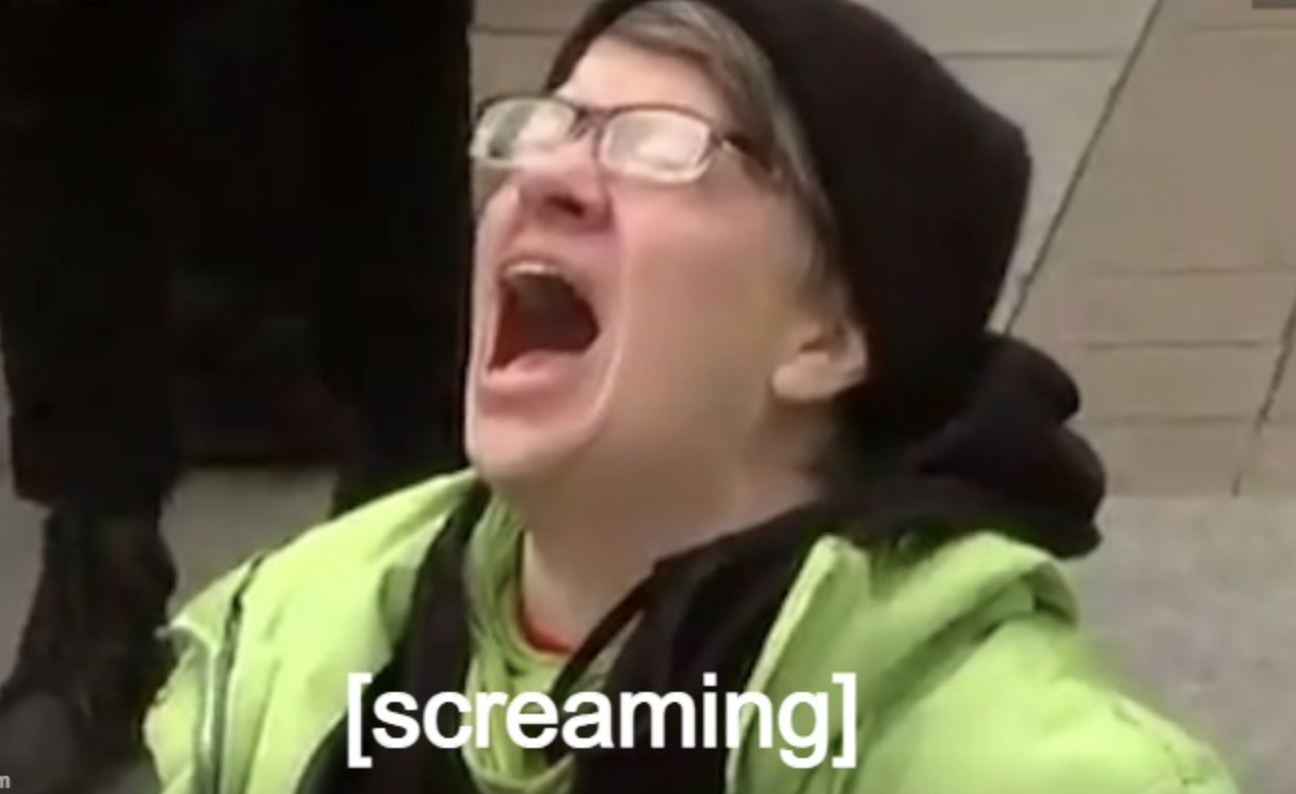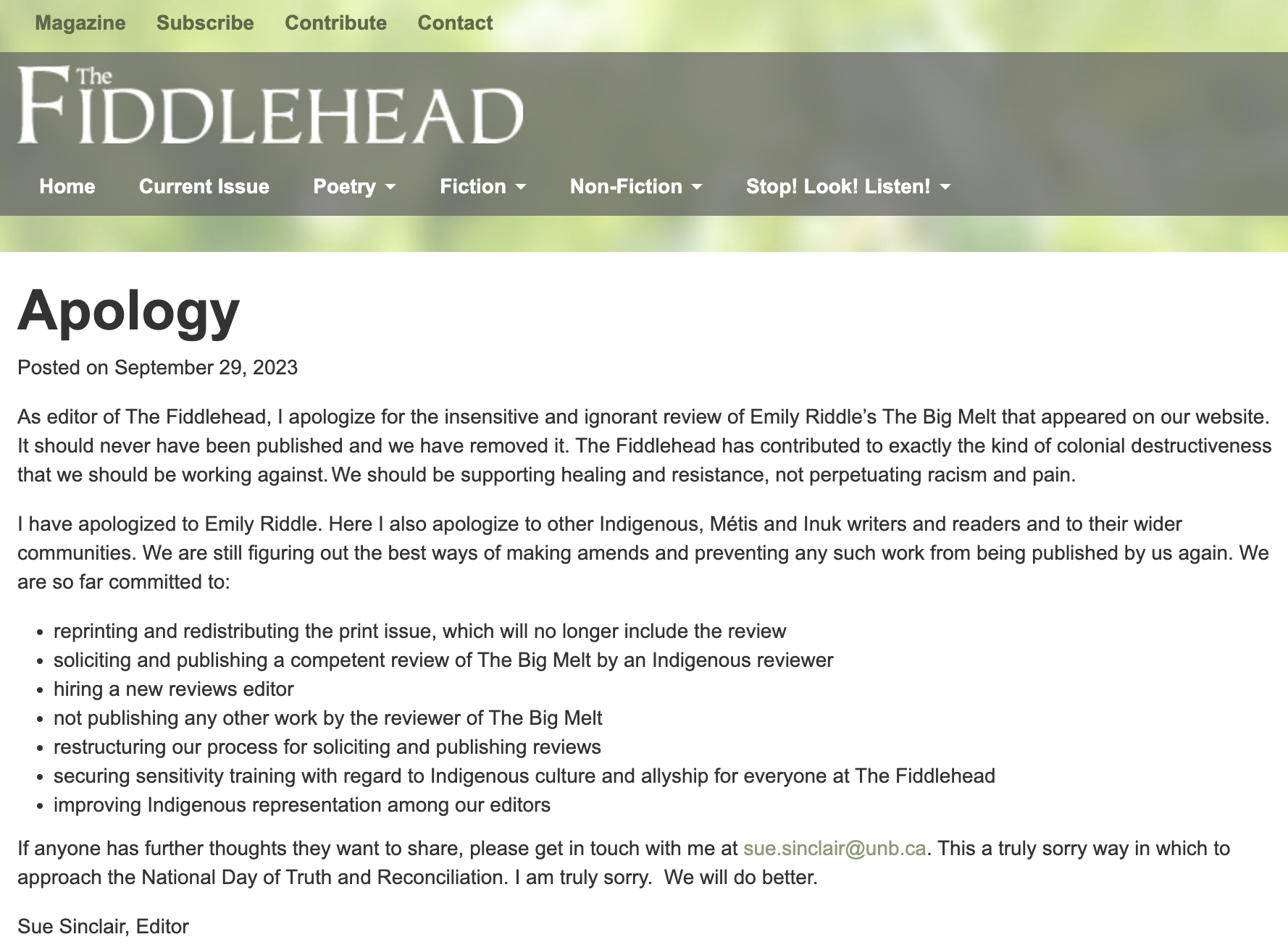Jill M. Talbot was born and currently resides in Vancouver, BC. She attended Simon Fraser University for psychology before pursuing her passion for writing. Jill writes poetry, short stories, creative nonfiction and plays tackling difficult subject matter. Jill’s writing has appeared in Geist, The Fiddlehead, CV2, Rattle, Poetry Is Dead, The Puritan, Matrix, subTerrain, The Tishman Review, The Cardiff Review, PRISM, Southword, The Stinging Fly, and others. Jill won the PRISM Grouse Grind Lit Prize. She was shortlisted for the Matrix Lit POP Award for fiction and the Malahat Far Horizons Award for poetry and was nominated for three Pushcart Prizes.
“Checkmate,” your creative non-fiction piece about borderline personality disorder in The Fiddlehead No. 277, demanded my full attention. Like all dense, complicated works, if you’ve missed a sentence, you’ve missed something important. The Fiddlehead interview is equally riveting, full of so much intoxicating “realness.” Does this kind of deep, honest disclosure exhaust you or revitalize you?
First off, I don’t think that’s what the essay was about. It certainly wasn’t my intention for it to be about borderline personality disorder. That’s only one of the diagnoses I’ve received, and I don’t actually believe in diagnoses generally. Right now I officially have none, which is a weird feeling. BPD is particularly problematic in that it’s based in misogyny. I’m not sure if disclosure is exhausting or revitalizing, that could be a false dichotomy. Part of what I don’t like about creative nonfiction is that it’s so often seen as a therapy session rather than a valid discipline. I’m not sure how deep it actually was. When you live a life on the margins, to merely discuss a day in your life is considered “disclosure,” whereas somebody else could go into great detail without the same considerations. I’m just not hiding.
I’m not very forthcoming for three reasons: 1.) If you’re not asking questions, I assume you’re not interested, 2.) I don’t want details of my life to be weaponized, and 3.) I don’t like it when people do stupid things with my information. I’ll disclose everything to a close confidant, but few people fall into that category. Were you once more secretive and protective? What are the benefits of intimate disclosure?
Again, there are many assumptions underlying this that I don’t particularly agree with. I don’t consider what I did to be “intimate disclosure.” Most of my life people have considered me to be very honest, but I was trained to play a part. And I’ll say it again, I’m just not hiding. And by telling your story in your own words you are protecting it, in a sense. In the case of “Checkmate,” the alternative could be that the “Dr Phil” version is the only one to exist. Honestly, these types of assumptions are why I avoid creative nonfiction. All writing relies on the writer using her own experience. I’m not revealing anything about my life to be intimate, but because there’s something in it that I think can be meaningful beyond my own experience, if that makes sense.
I’ve been thinking about why the diagnosis box is so attractive to mental health professionals. If I wanted to be generous, I might say that they’re trying to transform chaos to order. A less generous analysis is that stuffing something into a box—whether it fits or not— is the easiest course, and everybody likes to press the easy button. Seeing each patient clearly and distinctly from every other person without reaching for the DSM-5 or any other quick reference text would be a monumental task, and probably something each patient deserves. Caseloads make it impossible, of course, but do you think something like that could ever work?
The way you’ve formulated the question makes it seem like it’s a choice on the part of the mental health professional, when in reality they’re required to rely on the DSM. Giving a DSM diagnosis and prescribing medication is actually their only job. There are some advantages to labels, for instance in receiving certain funding. But of course I have always advocated in moving away from the DSM. But it really has nothing to do with a professional’s caseload, rather it’s how the entire system is set up.
In the interview you say you live in the Downtown Eastside [of Vancouver]. In the interview bio, you say you live on Gabriola Island. What gives?
My bio wasn’t updated.
Vancouver does a poor job of hiding its inequality. Ambulance and fire crews scramble around the Downtown Eastside (DTES) responding to a steady stream of Fentanyl overdose calls, while an off-putting number of Lambos and Ferraris sporting the new driver “N” sticker can be found in UBC student parking. The DTES is a monument to inadequate mental health and addiction care in this province. Considering you’ve spent some time there, I’m sure I’m not telling you anything you haven’t heard about or experienced before. What things do people consistently get wrong about Vancouver and the DTES specifically?
I’m not sure I see the connection between overdoses on the DTES and UBC parking lots. Overdoses happen everywhere, including in UBC parking lots. Wealth inequality exists but unfortunately addiction can strike anyone. Many people here would disagree with your formulation, they don’t agree with being seen as a crisis of mental health/addictions. They believe that the stigma around drug use is harmful. I think what everyone can agree on is the need for adequate housing. When I was a kid my father took my sister and I down here like we were visiting the zoo, and I recall people driving through the area locking their doors, which seemed like it was more of a form of performance art than anything. I was taught to fear the area but I actually think it’s pretty safe. Again, there’s a lot of stigma. Most of the dangers of violence arise when people from other areas come here looking for someone they think won’t be noticed missing, or to act out their own prejudice. I’ve also written stories that had absolutely no connection to the area, but people assumed it had to be about the area because of drug use. Drug use happens everywhere. I guess what people get wrong is that we’re just regular humans. We aren’t a monument to inadequacy of any kind, just people going through life. Of course many individuals in the area have a history of trauma. There’s also a great community.
My frustration revolves around these basic problems in the DTES that may never be fixed. I drive through it every day on the way to work and nothing ever changes. I don’t feel as much compassion, sympathy, or understanding as I should. Given the tiny percentage of people who can be “rescued” from this situation, or those who can haul themselves out of it, I mostly feel despair. If I grant you unlimited money and power, can you fix the DTES? How? Is the idea of “fixing” DTES typically patriarchal?
I wouldn’t call it patriarchal but it is problematic. Bruce Alexander talks about how the most harmful addiction is one to money. I think I would agree with that. Vancouver has the greatest addiction problem in the world because of dislocation and globalization. The DTES is where it’s most visible, but the problem is much wider. I personally am not in need of rescue. People are more resourceful and intelligent than they’re given credit for. I know they’ve done studies in England where instead of giving money to organizations to solve homelessness, they simply gave the money directly to the homeless. In the long term, this actually ended up bringing the most return on investment. Having many different types of workers to intervene often simply ends up being infantilizing. It might be more useful to specifically state what problem you think needs fixing. I think if people actually spent time down here getting to know people, not playing saviour or looking for pity but just connecting as human beings, their fear would dissipate.
I mean, look at the words you’ve used to describe people down here. That’s a pretty heavy judgment. There’s obviously more going on in your concern than simply an analysis of wealth inequality. I personally prefer when people are able to state what’s really going on.
In your Fiddlehead interview you said, “Most people in my day to day life don’t believe that I’m a real writer. I get a lot of condescension. So I still don’t think it’s real. A friend told me that most people think of writers as unicorns, they don’t expect to meet one in real life. I guess I feel the same, even about myself! To make things worse there’s another writer with the same name as me . . .” I’ve been thinking of writing a public service pamphlet called “What not to say to your writer friend.” After reading my book (or perhaps just hearing about it) one relative called me a pornographer. Others ask when the best seller is coming out, as if that is the only worthy or respectable outcome for a writer. When you talk about condescension, could you be more specific? What are some of the dumb things people have said to you or about you and your writing?
Oh, most things are too subtle to recall. Sometimes I’ve been asked if a top-tier literary magazine published everything it received. Some people assume everything is a “vanity press.” “It’s good to write things down even though you’re not a pro,” one said. My perseverance was applauded and I was told that one day it may pay off in publication (after I had told her several times about my publications…)
Having the same name as another writer only gets awkward when one of you is a household name. I feel for the “other” Margaret Atwood who has to spend the rest of her life making the distinction. Does being one of two writers named Jill Talbot get weird sometimes? Who wins the battle of the Google search results?
I wouldn’t say it only gets awkward when one is a household name. Neither of us are household names. I’m sure she does but I’m too afraid to Google myself. Often people make mistakes, a magazine will publish the other Jill’s bio. This is why I’ve started using my initial. If I could start over I would publish under my biological name instead. I once was offered a book deal and then had it taken away when the editor discovered that I’m not the other Jill Talbot. He said it was a matter of being Canadian, but I doubt it.
Who has been most helpful in your development as a writer? How were they helpful?
In the beginning having writer friends was helpful. I didn’t study writing so I knew basically nothing about literary magazines and whatnot.
Is writing something that can be done in isolation, or is connection with the community critical?
Writing can definitely be done in isolation. I’ve lived in severe isolation at many times in my life. Of course this doesn’t mean connection to other writers isn’t useful…
Is there such a thing as momentum when it comes to writing? Do you reach a point where your list of credits and contest wins pushes you up into the next tier of recognition?
There is a momentum but I don’t think it’s related to credits/contest wins. Well, I always think of momentum in terms of how much one’s producing and whether or not it’s of quality. This isn’t necessarily the same as recognition. But of course the more accolades you build up, the more you’ll be noticed. Your credits determine which grants you can apply for, but otherwise you don’t exactly move from one category into another.





Leave A Comment